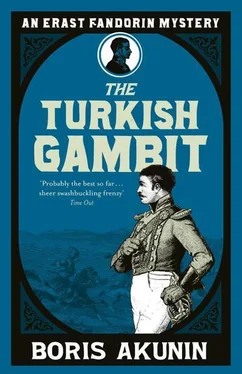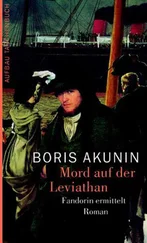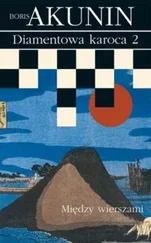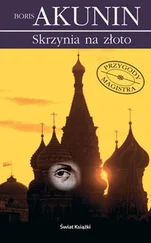The duration of the call of nature had exceeded all conceivable limits. Varya ate a little of the salty, unappetising cheese, took a sip of the sour wine and then, unable any longer to endure the curiosity that the fearsome denizens of the public house had begun to evince in her person, she went out into the yard.
Outside the door she froze in horror.
There was not a trace of the carutza or of the trunk with all her things which it contained. Her travelling medicine chest was in the trunk, and in the medicine chest, between the lint and the bandages, lay her passport and absolutely all her money.
Varya was just about to run out on to the road when the landlord, with a bright crimson nose and warts on his cheek, came darting out of the koxchma in his red shirt. He shouted angrily and gestured: pay up first, and then you can leave. Varya went back inside, because the landlord had frightened her and she had nothing with which she could pay him. She sat down quietly in the corner and tried to think of what had happened as an adventure. But she failed miserably.
There was not a single woman in the tavern. The dirty, loud-mouthed yokels behaved quite unlike Russian peasants, who are quiet and inoffensive and talk amongst themselves in low voices until they get drunk, while these louts were bawling raucously as they downed red wine by the tankard, constantly erupting into loud and rapacious (or so it seemed to Varya) laughter. At a long table on the far side of the room they were playing dice, breaking into uproarious dispute following every throw. On one occasion, when they fell to quarrelling more loudly than usual, a small man who was extremely drunk was struck over the head with a clay tankard. He lay there sprawled under the table and nobody paid the slightest attention to him.
The landlord nodded in Varya's direction and passed some savoury remark, at which the men sitting at nearby tables turned in her direction and roared in malevolent laughter. Varya squirmed and tugged her cap down over her eyes. Nobody else sitting in the tavern was wearing a cap, but she couldn't take it off or her hair would come tumbling down. Not that it was really long - Varya wore her hair short, as befitted a modern woman - but even so it would betray her membership of the weaker sex. That disgusting designation invented by men: 'the weaker sex'. But, alas, it was only too true.
Now their eyes were boring into Varya from every side, and their glances were viscous and disgusting. The only ones who seemed to have no time for her were the dice-players and some dejected type sitting two tables away with his back to her, his nose buried in a tankard of wine. All she could see of him was a head of short-trimmed black hair greying at the temples.
Varya began to feel really terrified. Stop snivelling, she said to herself. You're a strong, grown-up woman, not some prim young lady. You have to tell them you're Russian and you're travelling to join your fiance in the army. We are the liberators of Bulgaria-, everyone here is glad to see us. And then, speaking Bulgarian is so easy: you just have to add 'ta' to everything. Russian armyta. Fianceta. Fianceta of Russian soldierta. Or something of the sort.
She turned towards the window - maybe Mitko would suddenly turn up? Maybe he had taken the horses to the watering place and now he was on his way back? But alas, there was no sign of Mitko or any carutza out on the dusty street. Varya did, however, notice something that had failed to catch her attention earlier: protruding above the houses was a low minaret covered in chipped and peeling paint. Oh! Could the village possibly be Moslem? But the Bulgarians were Christians, Orthodox, everybody knew that. What's more, they were drinking wine, and that was forbidden to Moslems by the Koran. But if the village was Christian, then what on earth did the minaret mean? And if it was Moslem, then whose side were they on, ours or the Turks? Hardly ours. It looked as though the 'armyta' might not be much help after all. O, Lord, what was she to do?
At the age of fourteen, in a Holy Scripture class, little Varya Suvorova had been struck by an idea so un-impugnable in its very obviousness that it was hard to believe nobody had ever thought of it before. If God created Adam first and Eve afterwards, far from demonstrating that men were more important, this demonstrated that women were more perfect. Man was the experimental prototype of the human being, the rough draft, while woman was the final approved version, as finally revised and amended. Why, it was as clear as day! But for some reason the real, interesting side of life belonged exclusively to the men and all the women did was have children and do embroidery, then have more children and do more embroidery. Why was there such injustice in the world? Because men were stronger. And that meant she had to be strong.
So little Varya had decided she was going to live her life differently. The United States already had the first woman doctor in Mary Jacobi and the first woman priest in Antoinette Blackwell, while life in Russia was still riddled with dodoism and patriarchal discipline. But never mind, just give her time!
On graduating from girls' high school Varya had emulated the United States in waging a victorious war of independence (her papa, the solicitor Suvorov, proved to be a spineless weakling) and started training to be a midwife - thereby making the transition from 'perishing nuisance' to 'loony nihilist'.
The training did not work out well. Varya mastered the theoretical part with no difficulty, although she found many aspects of the process of creating a human being quite astonishing, even incredible; but when her turn came to assist at a genuine birth, it had proved most embarrassing. Unable to bear the heart-rending howls of the woman giving birth and the terrible sight of the flattened head of the infant as it emerged from the tormented and bloody flesh, Varya had disgraced herself by slumping to the floor in a dead faint, after which the only course left open to her had been to study to be a telegrapher. It had been flattering at first to become one of the first female telegraphers in Russia - they had even written about Varya in the St Petersburg Gazette (an article entitled 'Long Overdue' in the issue of the 28th of November 1875), but the job had proved to be boring beyond all endurance and without any prospects of advancement whatsoever.
And so Varvara, to her parents' relief, had taken herself off to their Tambov estate - not to idle her time away, but to nurture and educate the peasant children. It was there, in a brand-new school building still exuding the scent of fresh pinewood sawdust, that she had met the St Petersburg student Pyotr Yablokov, her Petya. Pyotr taught arithmetic, geography and basic natural science and Varvara taught all the other subjects. Quite soon, however, the peasants had realised that there were neither wages nor any other form of gratification to be earned by attending school, and they had taken their children back home - Enough of that loafing about, there's work to be done! But by that time Varya and Petya had already mapped out the course of their future life: free, modern, founded on mutual respect and a rational division of responsibilities.
She had put an end to humiliating dependence on her parents' handouts and they had rented a flat on the Vyborg side - with mice, but also with three whole rooms - in order to be able to live like Vera Pavlovna and Lopukhov in Chernyshevsky's What is to be Done! They each had their own territory and the third room was reserved for one-to-one discussions and receiving guests. To the landlords they had called themselves husband and wife, but their cohabitation was exclusively comradely in nature: in the evening they would read, drink tea and converse in the communal living room, then they wished each other good night and went to their separate rooms. They had lived in this way for almost a year, and lived very well, in perfect harmony, without any vulgarity or filth. Pyotr studied at the university and gave lessons and Varvara qualified as a stenographer and earned as much as a hundred roubles a month. She kept the records of court proceedings and took down the memoirs of a crazy old general, the conqueror of Warsaw,- and then, on the recommendation of friends, she had found herself recording the text of a novel for a Great Writer (we shall dispense with names, since the arrangement ended in unpleasantness). Varya regarded the Great Writer with veneration and had absolutely refused to accept any payment, feeling that she was quite fortunate enough to be doing such work at all; but the intellectual luminary had misinterpreted her refusal. He was terribly old, over fifty, burdened with a large family and not at all good-looking, but there was no denying that he spoke eloquently and convincingly: virginity really was a ridiculous prejudice, bourgeois morality was repulsive and there was nothing shameful about human nature. Varya had listened and then consulted for hours on end with her Petya about what she ought to do. Petya agreed that chastity and hypocritical piety were shackles imposed on women, but he resolutely counselled her against entering into physiological relations with the Great Writer. He grew heated and attempted to demonstrate that the Writer was not so very Great after all, even though he did have past services to his credit - that many progressive people actually regarded him as a reactionary. It had all ended, as previously mentioned, unpleasantly. One day the Great Writer, breaking off the dictation of a scene of exceptional power (Varya was writing with tears in her eyes) began breathing noisily, then he gave a loud snort, embraced his brown-haired stenographer clumsily round the shoulders and dragged her over to the divan. For a while she endured his unintelligible whisperings and the touch of his trembling fingers, which had become hopelessly entangled in her hooks and buttons, until suddenly she realised quite clearly -she did not, in fact, understand it so much as sense it -that this was all wrong and it simply could not happen. She pushed the Great Writer away, ran out of the room and never went back.
Читать дальше











